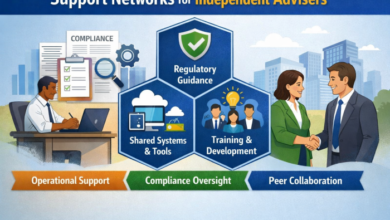Exploring the Impact of Knowledge Management Systems in Healthcare

In the ever-evolving healthcare landscape, effective information management is crucial. Medical professionals rely on accurate, real-time data to make informed decisions that directly impact patient outcomes. Knowledge management systems (KMS) in healthcare aim to streamline capturing, storing, and sharing knowledge. What is a knowledge management system for healthcare? It is a framework designed to ensure that healthcare professionals have easy access to valuable information, which ultimately enhances patient care. Below, we will explore how KMS contributes to patient care, improves team communication, and addresses the challenges faced during implementation. Keep reading to uncover the full scope of its impact on healthcare.
The Role of Knowledge Management Systems in Improving Patient Care

Knowledge management systems directly improve patient care by providing healthcare professionals with access to up-to-date medical information. When physicians and nurses can quickly retrieve patient histories, research findings, and treatment guidelines, they make better-informed decisions. This easy access to information results in faster diagnoses and more accurate treatment plans, which can be the difference between life and death.
KMS helps reduce medical errors by ensuring that the latest evidence-based practices are readily available. Healthcare professionals can consult standardized protocols and medical literature that inform best practices for patient care. By aligning the entire healthcare team with these resources, KMS minimizes the risk of misdiagnoses and inappropriate treatments.
The use of KMS can lead to more personalized patient care. By storing comprehensive patient data, KMS allows healthcare providers to track progress over time. This information enables clinicians to tailor treatments to the specific needs of each individual, fostering a more customized and effective care approach.
Furthermore, KMS facilitates proactive management of chronic conditions. By tracking patient health data and flagging potential issues early on, healthcare providers can intervene before conditions worsen. The system’s ability to identify trends or anomalies in patient data enables timely interventions, improving long-term patient health outcomes.
Enhancing Collaboration and Communication Through Knowledge Management

One key benefit of knowledge management systems is their ability to enhance collaboration among healthcare teams. By centralizing knowledge, KMS makes it easier for professionals to access and share relevant information with colleagues. This fosters a more cohesive approach to patient care, as team members are all on the same page regarding treatment plans and patient needs.
The system encourages interdisciplinary collaboration by breaking down silos within healthcare organizations. Nurses, doctors, specialists, and administrators can all contribute to the knowledge base, ensuring that no piece of critical information is left out. This open exchange of ideas and expertise promotes a more integrated healthcare experience, where professionals can work together more effectively.
In addition to improving internal communication, KMS also supports better communication with patients. By leveraging the system, healthcare providers can keep patients informed about their conditions and treatment options in a clear and accessible manner. This two-way communication helps patients feel more involved in their care, improving satisfaction and outcomes.
Knowledge management systems also improve the efficiency of communication between healthcare facilities. When patients move from one institution to another, KMS ensures that their medical information follows them seamlessly. This eliminates the need for redundant tests and ensures continuity of care, which is essential for effective treatment and recovery.
Overcoming Challenges in Implementing Knowledge Management in Healthcare
Implementing knowledge management systems in healthcare is not without its challenges. One significant hurdle is the resistance to change that many healthcare organizations face. Staff members may be accustomed to traditional ways of handling information and may be hesitant to adopt new technologies.
Another challenge is integrating KMS with existing healthcare technologies. Many healthcare institutions rely on various software solutions to manage patient care, from electronic health records to billing systems. Ensuring that a KMS can seamlessly integrate with these systems without causing disruptions is critical to successful implementation.
Data privacy and security are also major concerns when implementing KMS in healthcare. Protecting patient data from breaches is essential to maintaining trust and meeting regulatory requirements. Healthcare organizations must invest in robust security measures, including encryption and secure access controls, to ensure that sensitive information remains protected at all times.
Finally, ongoing maintenance and updates to the knowledge management system are necessary to keep it relevant and effective. As new medical knowledge emerges, the system must be continuously updated with the latest research, guidelines, and treatment protocols.
Overall, knowledge management systems are vital in enhancing patient care, improving collaboration among healthcare teams, and addressing key challenges in healthcare delivery. By effectively managing and sharing information, KMS contributes to better healthcare outcomes and a more efficient system.



